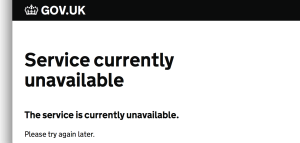Ahead of the start of the new financial year, BDO is warning people, especially those self-employed in services, to get their tax affairs in order, Dawn Register, partner at BDO, highlights for Lawyer monthly a few considerations.
Requirement to correct
The start of the new financial year should act as a significant time for any individual with any offshore tax activity to check through their affairs. The timeframe for people to voluntarily disclose prior to the deadline of 30th September 2018 is now considerably short. The tax legislation is incredibly complex, and individuals should check and double check to make sure that their UK filings are accurate. These filings should include anything from inherited offshore trusts or savings. Advisers are also going to feel under pressure to ensure there are no technical mistakes. By making this a legal requirement, HMRC is really giving teeth to the message that people who do not get their tax affairs in order will face severe consequences. Ignorance is no excuse.
Serial avoiders regime
HMRC has been shouting about avoidance wins for some time now, and with the start of a new financial year, will only want to ramp this up. It is worth noting that to be considered a serial avoider, someone only needs to be involved in one scheme. We expect avoiders to continue to see accelerated payment notices coming their way which allows HMRC to collect upfront payment of the disputed tax money. A significant struggle for participants approached by HMRC will be sourcing the cash to repay some, or all of the original tax relief they receive. Reviewing historical avoidance is crucial. Also, careful consideration is needed for new arrangements which HMRC could label 'avoidance'. Those participants involved in new schemes could face the lose of basic tax reliefs and be subject to HMRC’s new ‘naming and shaming’ laws with all the reputational risk and damage that ensues.
Tax dividends
The tax paid by individuals that are self-employed caused a huge furore in the past few weeks and attracted a lot of interest, with a notable and widely covered U-turn from the Chancellor. However, one measure around tax dividends remains and the self-employed who operate through personal service companies should use the new financial year as a time to review their tax affairs. The reduction in dividend tax allowance will see those who previously made use of the allowance facing higher tax bills. This might mean many people want to consider going into business alone using a personal service company, especially given that HMRC are now giving closer inspection to this area starting with those in the public sector. The loss of employment rights and wider employee benefits will also be factors to consider. The 'gig economy' debate continues!




















